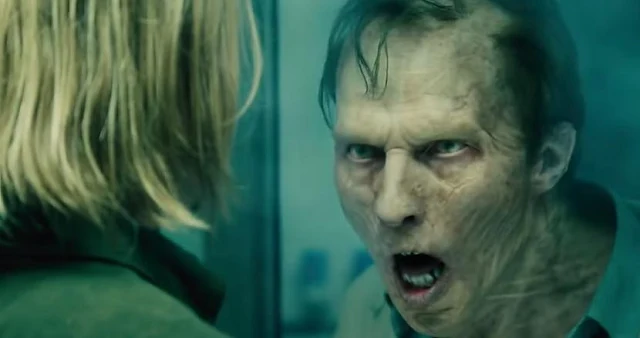What are we not doing to be scared! America Haunts, a Halloween entertainment company, estimates that Americans spend more than $500 million each year on haunted house admissions just to get a scare, and many horror fans don't limit their horror entertainment to the Halloween season, but there are more horrors movies, shows and books throughout the year.
Some people may find this fascination with horror unnecessary. School shootings, child abuse, war—the list of real-life horrors is endless. Why look to fictional fear for entertainment when the world offers real terror in such large quantities? Creating fear in an otherwise safe life can be enjoyable and is a way for people to practice and prepare themselves for real danger.
Image from: unsplash.com
Fear can make you feel good
Controlled fear experiences—where you can click the remote, close the book, or walk out of the haunted house whenever you want—offer the physiological highs of fear without the real risk.
When you perceive a threat, adrenaline rushes into your body and the evolutionary fight-or-flight response is activated. Your heart beats faster, you breathe deeper and faster, and your blood pressure rises. Your body prepares to defend itself against danger or to run away as quickly as possible.
This physical response is very important when faced with real threats. Experiencing controlled fear, such as the fear of zombies in a TV show, allows you to experience that energetic feeling similar to running, without any of the risk. Then, when the threat is removed, your body releases the neurotransmitter dopamine, which gives you feelings of pleasure and relief.
In one study, researchers found that people who visited a high-intensity haunted house had less brain activity in response to the stimuli and less anxiety after the exposure.
This finding suggests that exposing yourself to horror movies, scary stories, or suspenseful video games can actually calm you down afterward. This effect could also explain why you want to relax by watching zombie shows after a stressful day at work.
Image from: static1.cbrimages.com
It unites
An important motivation of people is the feeling of belonging to a social group. Americans who lack these connections are mired in an epidemic of loneliness that puts people at risk for mental and physical health problems, according to US surgeons.
The shared experience of intense fear strengthens the bonds between individuals. Veterans who served together in combat, survivors of natural disasters, and "families" formed by first responder groups are good examples.
The experience of controlled fear artificially creates similar opportunities for connection. Exposure to stress not only triggers the fight-or-flight response, but in many situations it also initiates what psychologists call the "try and make friends" system.
A perceived threat motivates humans to procreate and form socio-emotional bonds for protection and comfort. This system is largely regulated by the so-called "love hormone" oxytocin.
Entitlement and befriending reactions are especially likely when you experience stress in those around you with whom you already have positive social relationships. When you encounter stressors in your social network, your oxytocin levels rise to initiate social coping strategies.
As a result, when you have fun in a scary adventure like a haunted house with friends, you create an emotional backdrop to feel connected to the people around you. Sitting in the dark with friends watching a scary movie or walking through a haunted corn maze on a date is good for your health because it helps strengthen social connections.
Image from: www.heart.org
A little fear for better health
Controlled fear can also be a way to prepare for the worst. Think back to the early days of the Covid-19 pandemic, when 'Contagion' and 'Outbreak' were popular on streaming platforms, when people around the world were at home. By viewing threat scenarios in a controlled manner through media, you can learn about your fears and prepare yourself emotionally for future threats.
For example, researchers from Aarhus University's Recreational Fear Lab in Denmark showed in one study that people who regularly consumed horror media were more psychologically resilient than non-horror fans during the COVID-19 pandemic.
Scientists suggest that this resilience could be the result of a kind of training these fans went through – they learned to deal with the fear and anxiety caused by their favorite form of entertainment. As a result, they were better equipped to manage the real fears that the pandemic caused.
A controlled story and theme is the only way to prepare for real life.
Survive and thrive
In the case of controlled fear experiences, self-frightening is a key technique for survival and adaptation in a frightening world. By evoking strong, positive emotions, strengthening social connections, and preparing yourself for your worst fears, you can better enjoy each day to the fullest.
So the next time you're choosing between an upbeat comedy or a scary thriller for your movie night, choose the dark side—it's good for your health.


